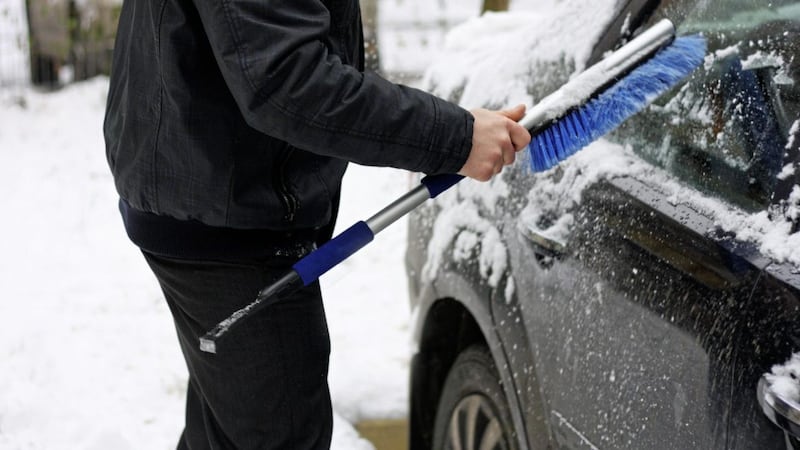WITH the Christmas holiday period behind us, we're now in the midst of the longest and most depressing month of the year, with all the bad weather and dark nights it can bring.
It’s no surprise a disproportionate number of road accidents occur in January, a fact largely attributed to a combination of adverse weather and poor light.
I'm frequently asked about safety tips to minimise our risk of accidents and what to do in the event of one.
For motor vehicle users:
- Check the weather forecast. This is especially good advice before long journeys, even in this small country where sudden snowstorms have seen drivers trapped in their cars overnight.
- Modify your driving when in snow, icy or foggy conditions. Travelling at 'normal' speed limits may be deemed excessive in poor weather conditions.
- Check your vehicle regularly for fuel, oil and water levels, tyre tread levels, working brakes, lights and windscreen wipers. What may be a minor issue in good driving conditions often proves more problematic in bad weather.
- It's a legal requirement to make sure that your windscreen and other windows are fully de-iced and de-misted before setting off on your journey. It's good practice to carry both a physical scraper and a chemical de-icing product in your car, just in case your vehicle ices up when you are parked away from home.
- In the unlikely event of being caught in bad weather when far from home, the RAC also recommends that you keep some emergency supplies in your vehicle. This might include a first aid kit, high-visibility clothing, food and water, and a torch.
- Ensure that your mobile phone is fully charged before leaving home. Not only your primary access to emergency assistance, most modern phones also feature a torchlight which proves invaluable on a dark night, and a camera, which I find increasingly useful for recording the aftermath of an accident. More and more road users also have “dash cams” installed in their vehicles for similar purposes.
For other road users:
- Whether as a pedestrian, jogger or a cyclist, it is important that you are easily visible to other road users during this season of bad weather and poor visibility. Wearing luminous or other high-visibility clothing is an easy safety choice, and surprisingly effective.
- Whilst cyclists should obviously ensure that the lights are working properly on their bicycles, more and more runners and walkers are also finding the benefit of using lights attached to their clothing or headwear.
- Where possible, let a friend or family member know of your proposed route and timings before leaving on your journey.
If you have the misfortune of being involved in an accident, particularly a serious matter involving injury, I find the following brief check-list to be of help:
- REPORT: Report the accident immediately to the police or other appropriate emergency authorities. If they cannot assist you, report the matter to a family member or friend.
- RECORD: Your memory may fade with time, particularly after a distressing experience. Use your phone to record photographs or video footage whilst still at the scene. Take a physical note of vehicle registrations and details of the other parties involved in any incident.
- REFLECT: When you are in place of safety and have the time and opportunity to do so, reflect on your experience and write down a brief note or statement. This may prove invaluable later on.
:: Stuart Gilmore (stuart.gilmore@oreillystewart.com is a partner at O’Reilly Stewart Solicitors (www.oreillystewart.com or 028 90321000).








